第1章 LETTER 1(1)
Chantelou in Touraine,Nov.6,1735.
My Lord :I have considered formerly,with a good deal of attention,the subject on which you command me to communicate my thoughts to you:and I practised in those days,as much as business and pleasure allowed me time to do,the rules that seemed to me necessary to be observed in the study of history.They were very different from those which writers on the same subject have recommended,and which are commonly practised.But I confess to your lordship,that this neither gave me then,nor has given me since,any distrust of them.I do not affect singularity.On the contrary,I think that a due deference is to be paid to received opinions,and that a due compliance with received customs is to be held;though both the one and the other should be,what they often are,absurd or ridiculous.But this servitude is outward only,and abridges in no sort the liberty of private judgment.The obligations of submitting to it likewise,even outwardly,extend no further than to those opinions and customs which cannot be opposed,or from which we cannot deviate without doing hurt,or giving offence to society.In all these cases our speculations ought to be free:in all other cases,our practice may be so.
Without any regard,therefore,to the opinion and practice even of the learned world,I am very willing to tell you mine.But,as it is hard to recover a thread of thought long ago laid aside,and impossible to prove some things,and explain others,without the assistance of many books which I have not here,your lordship must be content with such an imperfect sketch,as I am able to send you at present in this letter.The motives that carry men to the study of history are deficient.Some intend,if such as they may be said to study,nothing more than amusement,and read the life of Aristides or Phocion,of Epaminondas or Scipio,Alexander or Caesar,just as they play a game at cards,or as they would read the story of the seven champions.
Others there are,whose motive to this study is nothing better,and who have the further disadvantage of becoming a nuisance very often to society,in proportion to the progress they make.The former do not improve their reading to any good purpose;the latter pervert it to a very bad one,and grow in impertinence as they increase in learning.I think I have known most of the first kind in England,and most of the last in France.The persons I mean are those who read to talk,to shine in conversation,and to impose in company;who having few ideas to vend of their own growth,store their minds with crude unruminated facts and sentences;and hope to supply,by bare memory,the want of imagination and judgment.
But these are in the two lowest forms.The next I shall mention are in one a little higher;in the form of those who grow neither wiser nor better by study themselves,but who enable others to study with greater ease,and to purposes more useful;who make fair copies of foul manus,give the signification of hard words,and take a great deal of other grammatical pains.
The obligation to these men would be great indeed,if they were in general able to do any thing better,and submitted to this drudgery for the sake of the public:as some of them,it must be owned with gratitude,have done,but not later,I think,than about the time of the resurrection of letters.